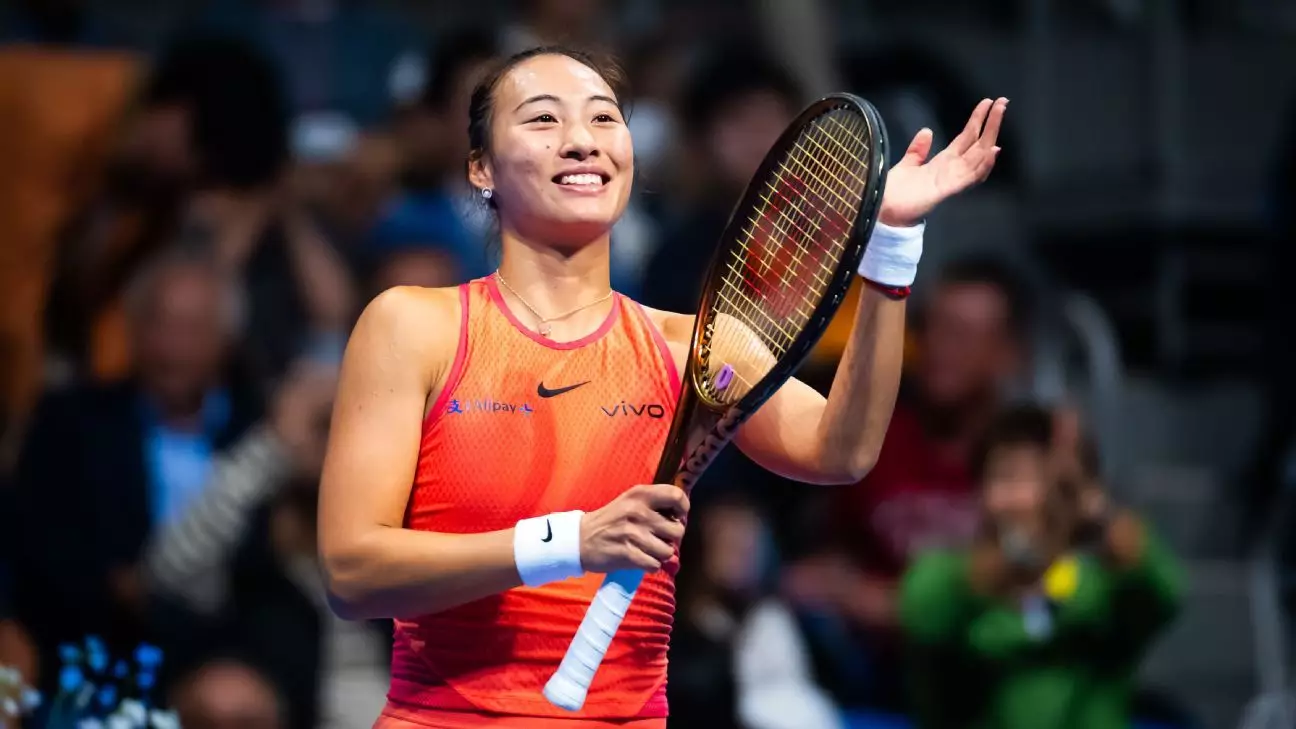In the fast-paced world of professional sports, athletes must continually assess their physical health and overall performance strategy. Zheng Qinwen’s recent decision to withdraw from the United Cup tournament exemplifies this principle. By prioritizing rest and preparation over immediate competition, Zheng is positioning herself for a successful 2025 season, reflecting a maturity that often develops through experiences of both triumph and challenge.
The 2024 season was a remarkable one for Zheng, who at just 22 years old, marked significant milestones in her career. Her journey to the finals of the Australian Open, albeit ending in disappointment against Aryna Sabalenka, showcased her potential to compete on the world stage. The pinnacle of her season came when she clinched a gold medal at the Paris Olympics, an achievement that certainly placed her under the spotlight. Ending the year ranked at No. 5 in the WTA standings solidified her status as one of the premier players in women’s tennis.
However, the highs of athletic achievement often come with the toll of extensive physical and psychological strain. Acknowledging this pressure is crucial for any athlete who desires longevity in their career.
Zheng’s decision to prioritize recovery over immediate competition reveals a strategic mindset. In a sport where physical fitness can directly impact performance levels, taking time off for recuperation is not just advisable; it’s essential. Her announcement via social media underlines a thoughtful approach to her training regimen, as she stated: „After the long season that 2024 was for me, I need a few extra weeks of rest, recovery, and good training to get ready for the new season.“
This sentiment resonates with many athletes who have faced seasons where pushing through fatigue or minor injuries led to longer-term setbacks. By allowing herself the necessary time to heal and prepare, Zheng is taking proactive steps to ensure her readiness for the more demanding events ahead.
Zheng’s absence at the United Cup undoubtedly leaves a gap for the Chinese team, as she was set to be one of their key players. With her opting out, Gao Xinyu will ascend to the position of top-ranked female player for China at the tournament. This shift presents both a challenge and an opportunity for the team dynamics as they gear up to face Brazil in Perth.
Zheng’s withdrawal serves as a reminder of the intricate balance between competition and careful personal management in sports. While fans will miss the excitement she brings to the court, her choice reflects a larger principle: that sometimes, stepping back is the best strategy for moving forward.
Looking forward, Zheng’s dedication to her training and recovery indicates her commitment to not just participating but excelling in upcoming competitions, particularly at the Australian Open starting on January 12. As she prepares to take the stage again, her fans and peers alike will likely respect and support her decision, reinforcing the idea that the pathway to success often requires mindful choices about rest, rejuvenation, and realistic goal-setting. In the long run, this prudent approach may very well ensure that Zheng continues to captivate audiences and achieve greatness on the international tennis stage.


Napsat komentář